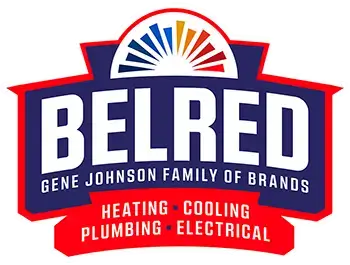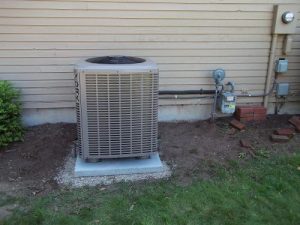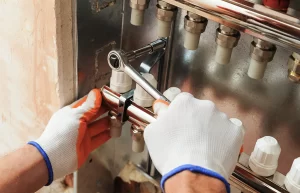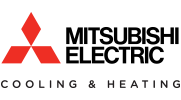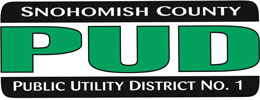With climate change becoming an increasingly pressing issue, sustainable living practices are more important than ever.
One area that homeowners can focus on to promote sustainable living is their air conditioning usage during the hot summer months.
In this article, we’ll explore ways to make your air conditioning more eco-friendly, provide recommendations for energy-efficient AC units, and inform you about available government incentives and rebates.
Need help finding the right air conditioning solution for your house?
Contact us at (855) 345-6161 today to book an appointment with our experts!
Is Your AC Unit Eco-Friendly? An In-Depth Guide
To determine if you have a sustainable air conditioning unit, you need to look at the following factors:
Energy Efficiency Ratings
When shopping for an eco-friendly air conditioner, pay attention to its Seasonal Energy Efficiency Ratio (SEER) and Energy Efficiency Ratio (EER).
These ratings measure the cooling efficiency of the unit relative to its power input. A higher SEER or EER rating signifies better energy efficiency.
As of 2021, the minimum SEER rating for new air conditioners is 14, but eco-friendly units often have SEER ratings of 16 or higher.
Where to Find an AC’s SEER/EER Rating?
Finding an air conditioner’s SEER (Seasonal Energy Efficiency Ratio) and EER (Energy Efficiency Ratio) ratings is typically quite simple. Here are a few ways to locate these ratings:
Manufacturer’s Label or Sticker
Most AC units have a manufacturer’s label or sticker attached to the outdoor condenser unit.
This label usually includes essential information such as the model number, serial number, and efficiency ratings (SEER and EER).
Check the label for the SEER and EER values.
Product Manuals
The product manual or user guide that comes with your air conditioner often contains the SEER and EER ratings.
If you don’t have a physical copy of the manual, you can usually find a digital version on the manufacturer’s website by searching for your AC unit’s model number.
Manufacturer’s Website
Visit the manufacturer’s website and search for your AC unit’s model number.
The product page should provide detailed information, including the SEER and EER ratings.
If you can’t locate your specific model, you may still find general information on the efficiency ratings for the product line.
ENERGY STAR Website
If your air conditioner is ENERGY STAR certified, you can find the SEER and EER ratings on the ENERGY STAR website.
Search for your unit’s model number in their product database to access its efficiency information.
Retailer’s Website or In-Store Product Information
Retailers that sell air conditioners often provide efficiency ratings on their websites or in-store product information. Browse the product descriptions, specifications, or technical details to find the SEER and EER ratings.
Ask a Professional HVAC Technician
If you’re still having trouble finding the SEER and EER ratings, consult a professional HVAC technician.
Contact us at (855) 345-6161 for expert assistance.
Refrigerants
The type of refrigerant used in your air conditioning unit has a significant impact on its eco-friendliness.
Some older refrigerants, such as R-22, have a high Global Warming Potential (GWP) and are harmful to the environment.
When selecting an eco-friendly AC unit, choose one that uses refrigerants like R-32 or R-410A, which have lower GWP values and are less detrimental to the ozone layer.
Size and Capacity
The size and capacity of your AC unit play a vital role in its eco-friendliness. An oversized or undersized unit can lead to increased energy consumption and a larger carbon footprint.
To ensure your AC unit is properly sized for your home, consult a professional HVAC technician who can perform a load calculation, taking into account factors such as your home’s square footage, insulation levels, and window types.
This will help determine the appropriate cooling capacity required for your home.
Variable Speed Technology
Look for an AC unit with variable speed technology, which allows the system to adjust its cooling output according to the current cooling demand.
This results in more consistent temperatures, improved energy efficiency, and reduced wear and tear on the unit.
Smart Features
Many modern eco-friendly air conditioners come with smart features, such as Wi-Fi connectivity and compatibility with smart home systems.
These features allow you to control your AC unit remotely, set schedules, and monitor energy usage, enabling you to optimize your cooling habits for both comfort and energy efficiency.
Certifications
Seek out AC units that have been certified by organizations such as ENERGY STAR or AHRI (Air Conditioning, Heating, and Refrigeration Institute).
These certifications indicate that the unit meets specific energy efficiency standards and has been tested for performance.
By accessing this information, you can make a more informed decision when selecting an eco-friendly air conditioner.
If you’re struggling to figure out if the AC unit you have meets your sustainability goals, we can help.
Our technicians are well-versed in a wide variety of AC makes and models. We can help you find the best solution available.
Contact us today to get started.
Eco-Friendly Options to Consider
When shopping for a new air conditioning unit, consider the following eco-friendly options:
Option 1: Ductless Mini-Split Systems
These energy-efficient units consist of an outdoor compressor and one or more indoor air-handling units, allowing you to cool individual rooms as needed.
By only cooling the areas in use, you can reduce energy consumption and save money on your energy bills.
Option 2: Geothermal Heat Pumps
Geothermal heat pumps use the stable temperature of the earth to cool your home, significantly reducing energy usage and greenhouse gas emissions.
Although the upfront cost can be high, the long-term energy savings often make this option worthwhile.
Option 3: Evaporative Coolers
Evaporative coolers, also known as swamp coolers, use the natural process of evaporation to cool your home.
By drawing in hot, dry air and passing it through a wet pad, these units produce cool, humidified air.
Evaporative coolers consume less energy than traditional air conditioning systems and work best in dry climates.
Still not sure what cooling option is best for your home? Call us today for assistance!
Reducing Energy Consumption: Strategies for a Greener Summer
If buying a new, more energy-efficient AC unit is just not in the cards for you, no need to fret.
There are several ways to reduce energy consumption in your home during the summer months, without spending a lot of money.
Consider the following strategies for a greener summer:
Get Regular Maintenance
To maintain optimal efficiency, clean or replace your AC filters at least once a month.
Additionally, schedule regular tune-ups with a professional HVAC technician, who can clean the coils, check refrigerant levels, and ensure that all components are functioning properly.
Seal Your Home
Air leaks around windows, doors, and other openings can lead to significant energy loss.
Check your home for any gaps or cracks and seal them with caulk or weatherstripping.
Also, consider adding insulation in your attic or walls if needed to improve your home’s overall energy efficiency.
Use a Programmable Thermostat
A programmable or smart thermostat allows you to set different temperature schedules for when you’re home, away, or asleep.
By automatically adjusting the temperature based on your preferences and schedule, you can save energy and reduce your carbon footprint.
Use Fans and Ventilation
Ceiling fans, box fans, and natural ventilation can help circulate cool air throughout your home, reducing the need for constant air conditioning.
To maximize the efficiency of your fans, ensure they are rotating counterclockwise during the summer months to create a cooling breeze.
Opt for Energy-Efficient Window Treatments
Install energy-efficient window treatments, such as thermal curtains, blinds, or shades, to block out heat from the sun and keep your home cooler.
Plant Trees or Install Awnings
Planting trees or installing awnings to shade your home can help keep it cooler, reducing the need for air conditioning.
Government Incentives for Green Home Improvements
There are several government incentives and rebates available to homeowners who invest in energy-efficient improvements, including:
- Inflation Reduction Act of 2022: This act provides federal tax credits and deductions for energy-efficient home upgrades made in 2022.
- Federal Tax Credits: Homeowners can receive a tax credit of up to 26% for the installation of energy-efficient equipment, such as geothermal heat pumps or solar energy systems.
- State and Local Rebates: Many states and local utilities offer additional rebates and incentives for homeowners who invest in energy-efficient home improvements. Check with your local utility company for more information on available programs.
By investing in sustainable air conditioning practices, homeowners can not only save money on their energy bills but also contribute to the global effort to combat climate change.
Partner with BelRed for a Greener, More Comfortable Home
At BelRed, we’re committed to helping homeowners find the best sustainable air conditioning options tailored to their unique needs.
Our experienced professionals will guide you through the process of selecting and installing the most efficient and eco-friendly cooling systems for your home.
- Enjoy various perks when you work with us, including
- Expert Consultation
- Energy Audits
- Professional Installation
- Ongoing Maintenance and Support
- Financing and Rebate Assistance
Ready to Go Green with BelRed?
Transform your home into an energy-efficient oasis with the help of BelRed’s expert team.
Contact us today for AC repair, installation, and maintenance services. Make the switch and experience the benefits of lower energy bills, reduced carbon footprint, and enhanced comfort.
